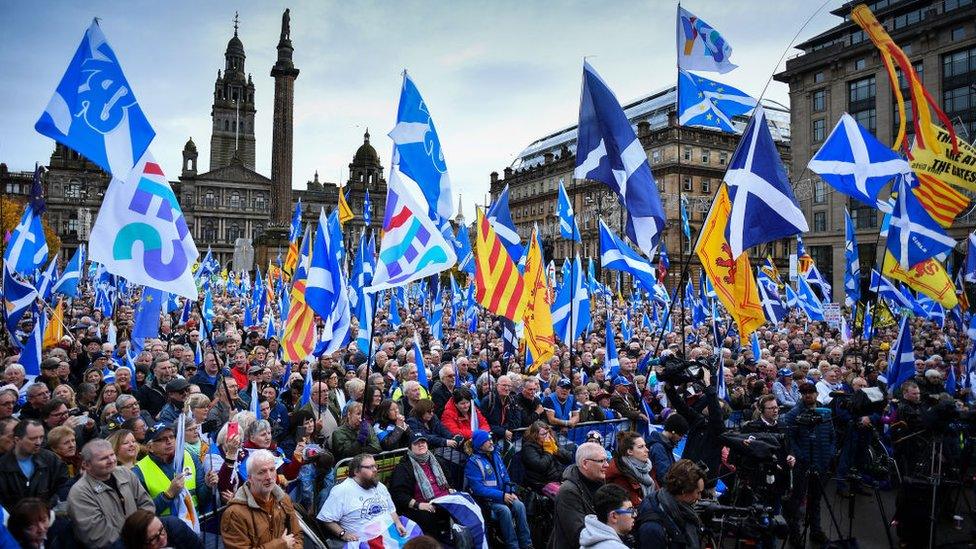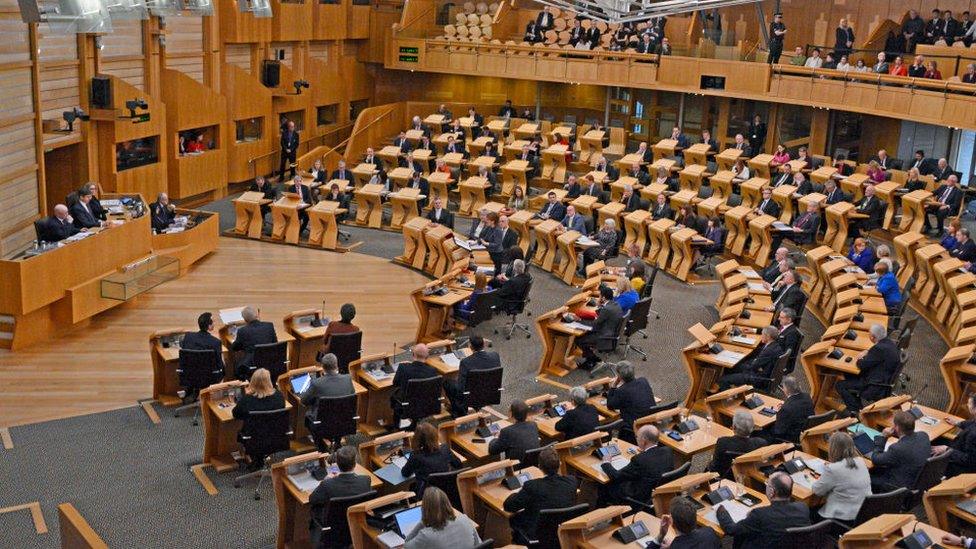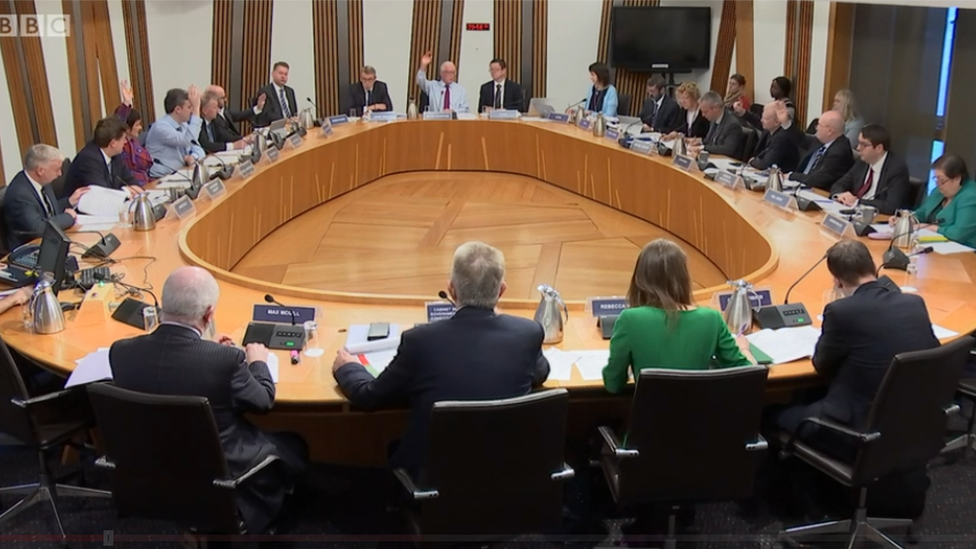MSPs back compromise on indyref2 question
- Published

The legislation was put forward to pave the way for a new independence referendum
MSPs have agreed a compromise that would allow the 2014 independence referendum question to be used again in a future ballot.
There had been calls for the Electoral Commission to be consulted about the wording of the question.
However, Holyrood's constitution committee said the question would not need to be tested during the current term as long as MSPs back the move.
The electoral watchdog would also have some input during the process.
The committee was examining and voting on amendments to the Referendums (Scotland) Bill.
The legislation sets out a framework for any referendums to be held in Scotland, and could pave the way for a new ballot on independence.
Ministers have accepted that further legislation would need to be passed before a vote could be held.
The legislation looks set to pass with the backing of the SNP and Greens, but the three unionist parties have all said they will oppose it.

Holyrood's three pro-UK parties oppose the bill, but are outnumbered by the pro-independence SNP and Greens
First Minister Nicola Sturgeon wants to hold a new referendum on independence in 2020, and her government has put forward the Referendums Bill as the first step towards making this happen.
Ms Sturgeon wants to have the legislation in law "by the new year" and has pledged to formally request a transfer of power from Westminster before Christmas - a move she said would help put the legality of a referendum "beyond any doubt".
MSPs backed an amendment which would mean any constitutional referendum would only be possible if a further piece of primary legislation was passed first, following concerns the bill would give ministers too much power.
Question testing
The Electoral Commission has "strongly" recommended it is allowed to scrutinise any referendum question, but the government has insisted that the question used in 2014 is still in "current use" and does not need to be looked at again.
MSPs backed an amendment put forward by Constitutional Relations Secretary Mike Russell Russell that would set a "validity period" for a previously-tested question of one term and allow MSPs to extend this period to a second term - as in the case of the 2014 question - and the Electoral Commission would be consulted as part of this process.

The SNP and Greens have a majority on the committee
Mr Russell said this was a "major concession" by the Scottish government, but Tory MSP Adam Tomkins warned there was a "lingering suspicion" that the government was attempting to bypass the commission by "rigging the rules of a future referendum".
The amendment was passed with the support of SNP and Green MSPs, with Tory and Labour MSPs voting against. No Lib Dem MSPs sit on the committee.
Amendments were also proposed to:
have all referendums held on Saturdays
introduce a 50% turnout threshold on any referendum
require councils to encourage people to vote and "promote public awareness" about voting
introduce rules making it an offence to make false claims during a referendum campaign
require second, confirmatory referendums on any decisions on constitutional issues
make it a duty for ministers to follow Electoral Commission advice
The SNP and Greens have a majority on the committee, so were able to reject many of the proposals put forward by Labour, Conservative and Lib Dem members.
After changes to the bill have been considered by the group, it will go back to a full vote of all MSPs in the Holyrood chamber before becoming law.
- Published7 November 2019
